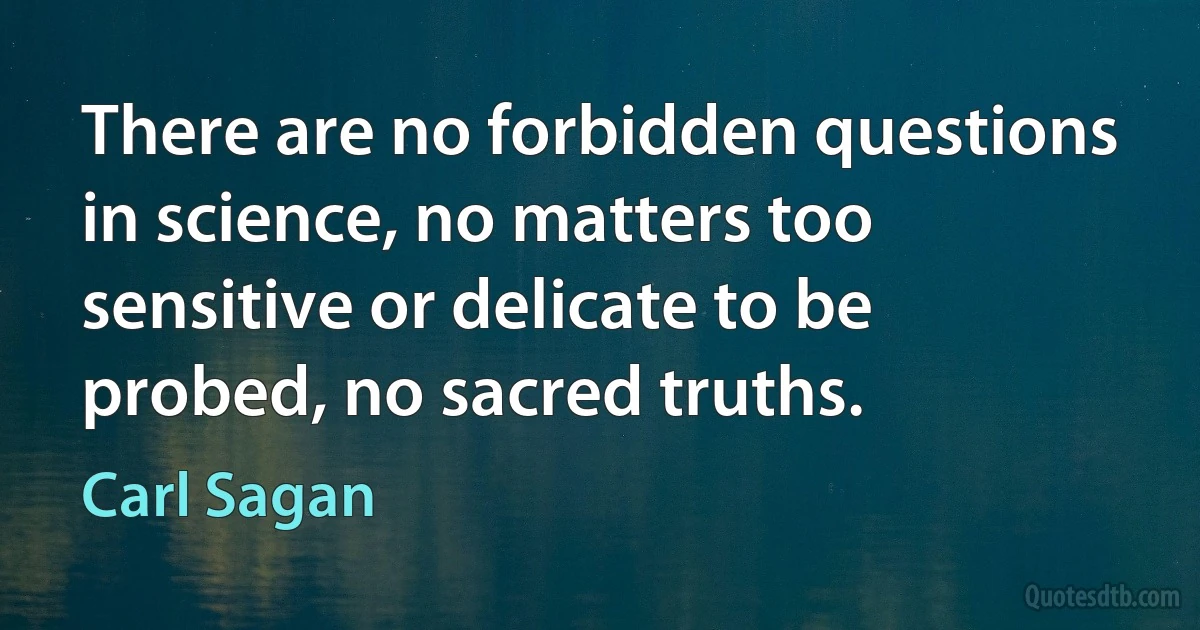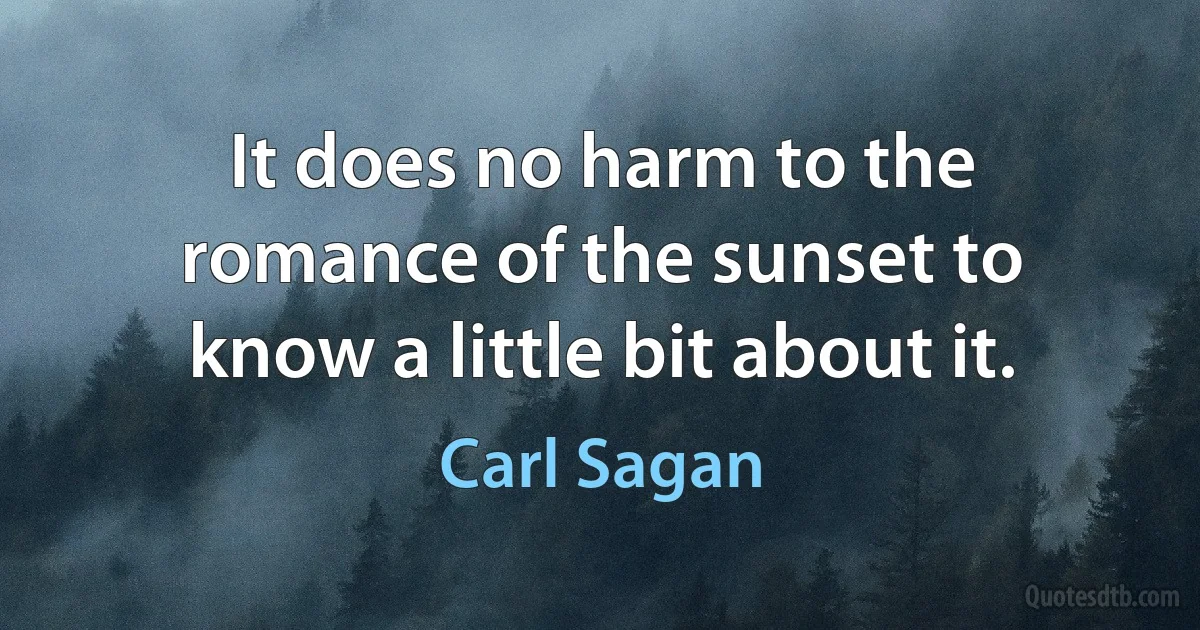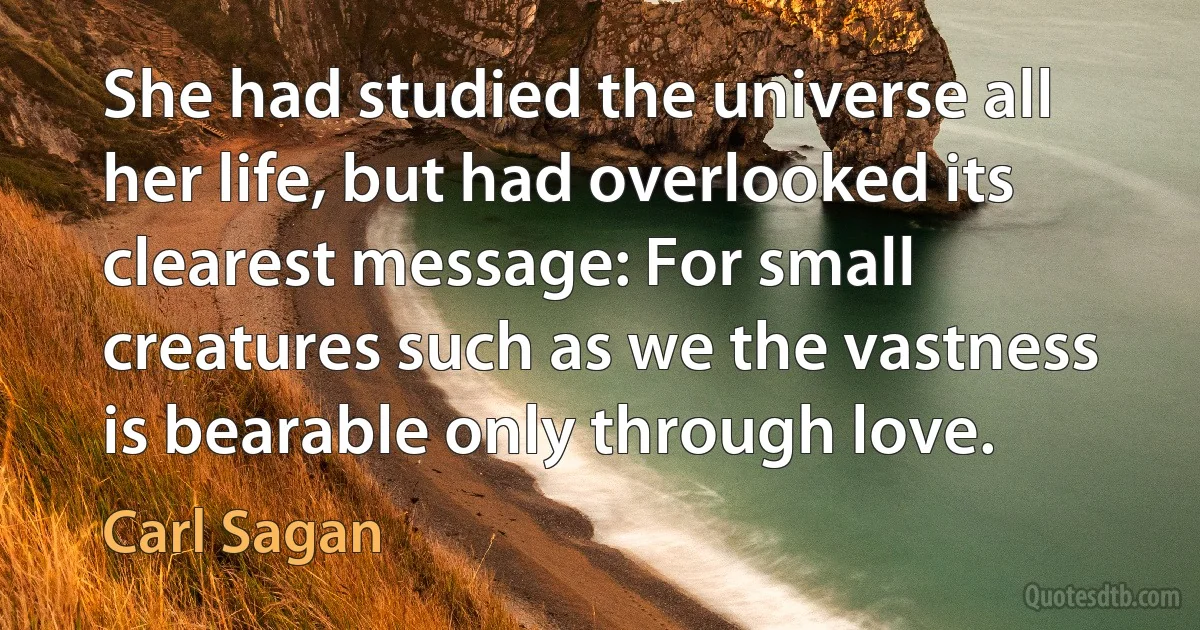Carl Sagan quotes - page 6
Carl Sagan was an American astronomer, astrophysicist, and science communicator, widely regarded for popularizing science. His television series "Cosmos" inspired generations to look up at the stars and seek understanding of the universe. He made significant contributions to planetary science and remains a powerful advocate for scientific curiosity. Here are 433 of his quotes:
A new consciousness is developing which sees the earth as a single organism and recognizes that an organism at war with itself is doomed. We are one planet. One of the great revelations of the age of space exploration is the image of the earth finite and lonely, somehow vulnerable, bearing the entire human species through the oceans of space and time.

Carl Sagan
Carl Sagan
Occupation: American AstrophysicistBorn: November 9, 1934
Died: December 20, 1996
Quotes count: 433
Wikipedia: Carl Sagan














